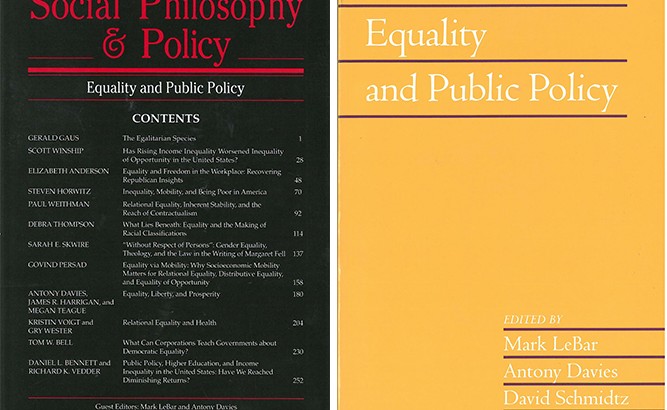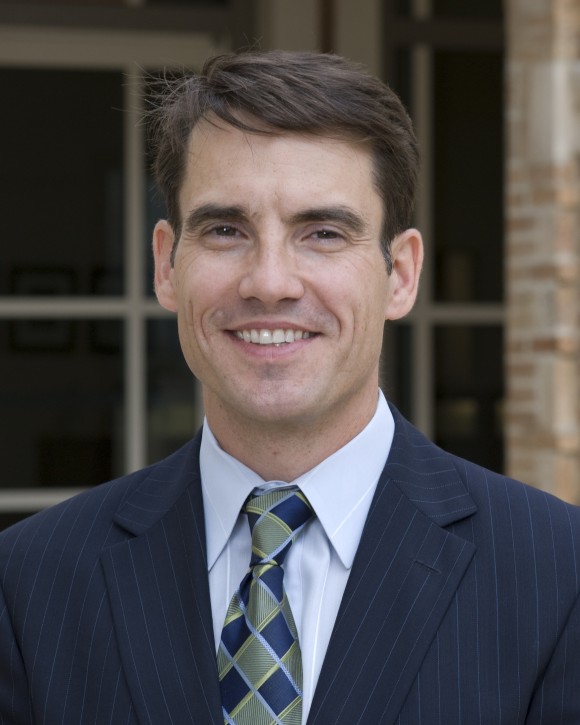
Fowler School of Law Professor Tom W. Bell Publishes “What Can Corporations Teach Governments About Democratic Equality?”
August 6, 2015
Chapman University Dale E. Fowler School of Law Professor Tom W. Bell’s article “
What Can Corporations Teach Governments About Democratic Equality?
,” originally published this spring in volume 31 of the peer-reviewed journal
Social Philosophy & Policy
, will be featured as a chapter in the forthcoming book
Equality and Public Policy
, both of Cambridge University Press.
Abstract:
“Democracies place great faith in the principle of one-person/one-vote. Business corporations and other private entities, in contrast, typically operate under the one-share/one-vote rule, allocating control in proportion to ownership. Why the difference? In times past, we might have cited the differing ends of public and private institutions. Whereas public democracies aim at promoting the general welfare of an entire political community, private entities aim at more specific goals, such as generating profits or managing a cooperative residence. As business entities have grown in size and in the range of services they provide, however, the distinction between public and private governance has grown blurry. Brooklyn’s Co-Op City, for instance, provides more than 50,000 shareholder-tenants with housing, utilities, stores, offices, schools, parks, security, and other services normally provided by a municipality. The largest homeowners association in the United States, Highlands Ranch, Colorado, provides over 30,000 homes and 90,000 residents with the functional equivalent of an entire town. Soon, entire “startup cities” may join residential cooperatives and homeowner associations in drawing their governing principles from private sources. How can private communities affirm the principles of democratic equality? By affording full protection to all rights holders, individuals and owners alike. The one-person/one-vote approach popular in political contexts works best at protecting the individual personal rights — freedoms of conscience, speech, and innumerable others — to which each of us has an equal claim. Corporate law’s one-share/one-vote rule works best at protecting the property rights of those who invest in a commonly owned community. This paper explains why a polity should offer both corrective and constructive democracy. Residents exercise corrective democracy in defense of their individual rights by submitting officials and laws to popular veto. Shareholders exercise constructive democracy in defense of their investments, choosing directors and managing polity governance. The result: a double democracy that combines the best features of public and private governance to give equal treatment to both the personal rights of individual residents and the property rights of shareholder owners. Respect for democratic equality demands nothing less.”
 Professor Tom W. Bell
Professor Tom W. Bell
specializes in high-tech legal issues and has written widely on Intellectual Property and Internet Law. His latest book,
Intellectual Privilege: Copyright, Common Law, and the Common Good
, was published in 2014. Professor Bell received his Juris Doctor from the University of Chicago Law School in 1993, where he served both as a member of the
University of Chicago Law Review
and as Articles Editor and cofounder of the
University of Chicago Legal Roundtable
. Prior to joining Fowler School of Law in 1998, among other positions, Professor Bell was an attorney with the Silicon Valley law firm of Wilson Sonsini Goodrich & Rosati and served as Director of Telecommunications and Technology Studies at the Cato Institute in Washington, D.C. In addition to writing a steady stream of scholarly works, Professor Bell has appeared on or been quoted in the
Wall Street Journal
, CNN,
Los Angeles Times
and many other news sources. He teaches Intellectual Property, an Advanced Seminar on Copyright Law, Property Law, and Contract Law, among other courses.

